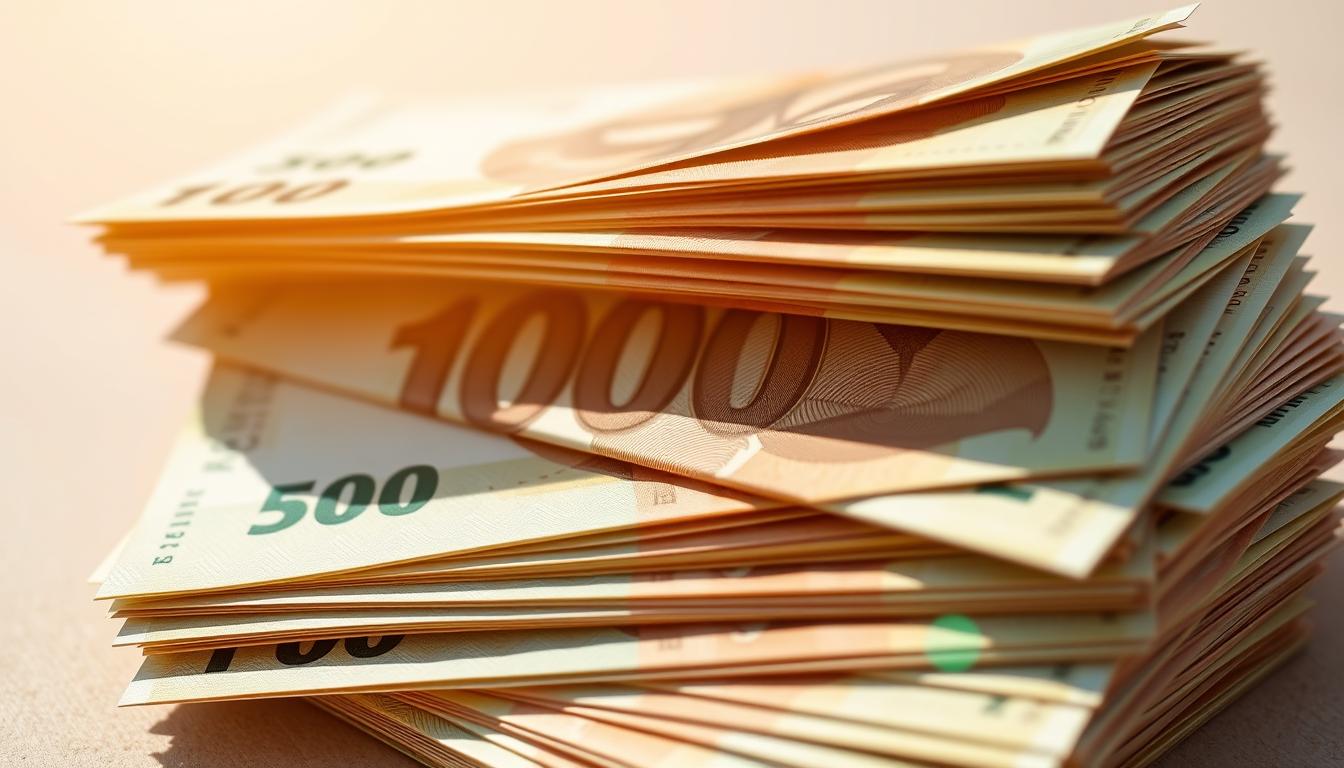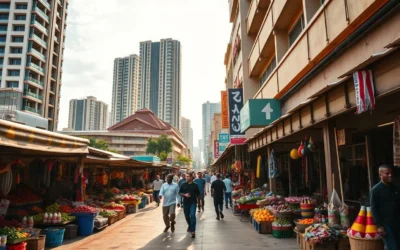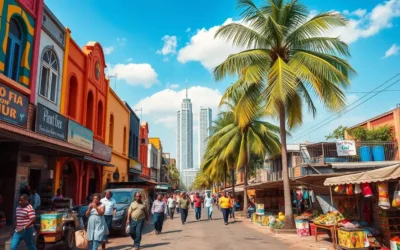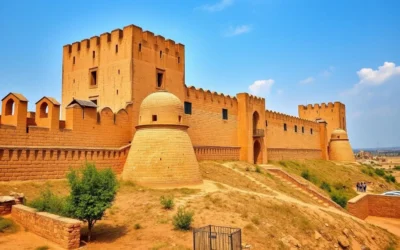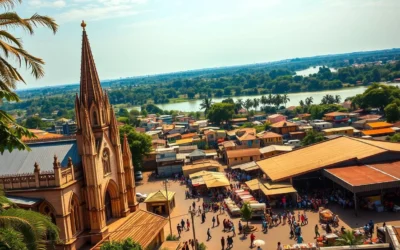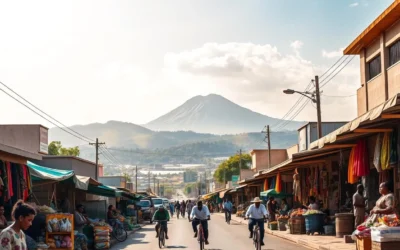Did you know that the exchange rate for USD to the Nigerian naira is approximately $1.00 = ₦778.62? This makes it essential to understand how money works when you travel. Knowing the local currency and exchange rates can save you time and avoid unnecessary fees.
In Nigeria, the naira is the official currency, and it’s crucial to familiarize yourself with its denominations. Most transactions are cash-based, especially outside major cities. This means carrying cash is often necessary, but you’ll also find ATMs and banks in urban areas.
Whether you’re using a credit card or withdrawing cash, understanding transaction fees and exchange rates can make your trip smoother. This guide will help you navigate everything from cash usage to digital payment options, ensuring you’re prepared for your adventure.
Understanding Nigeria’s Monetary Landscape
The Nigerian naira, symbolized as ₦, is the backbone of the country’s financial system. It’s divided into 100 kobo, making it easy to handle smaller transactions. Whether you’re shopping at a local market or paying for services, the naira is the currency you’ll use most.
Nigerian Naira Basics and Denominations
The naira comes in both banknotes and coins. Banknotes range from ₦5 to ₦1000, while coins include 50 kobo, ₦1, and ₦2. These denominations make it simple to manage your money for everyday needs.
Carrying cash is essential, especially in rural areas where card payments may not be accepted. Knowing the denominations helps you avoid confusion during transactions.
Historical Context and Currency Evolution
The naira replaced the Nigerian pound in 1973, marking a significant shift in the country’s monetary system. This change was part of Nigeria’s move toward a decimalized currency, simplifying calculations for everyone.
The Central Bank of Nigeria plays a crucial role in maintaining the naira’s value. Over the years, the design of banknotes has evolved to include advanced security features, reducing the risk of counterfeit notes.
Understanding this history helps you appreciate the naira’s role in the economy. It also prepares you to handle money more effectively during your travels.
Navigating Currency Exchange in Nigeria
Exchanging currency in a foreign country can be tricky, but with the right knowledge, you can avoid common pitfalls. In Nigeria, it’s essential to know where and how to exchange money safely. This ensures you get the best rates and avoid unnecessary fees.
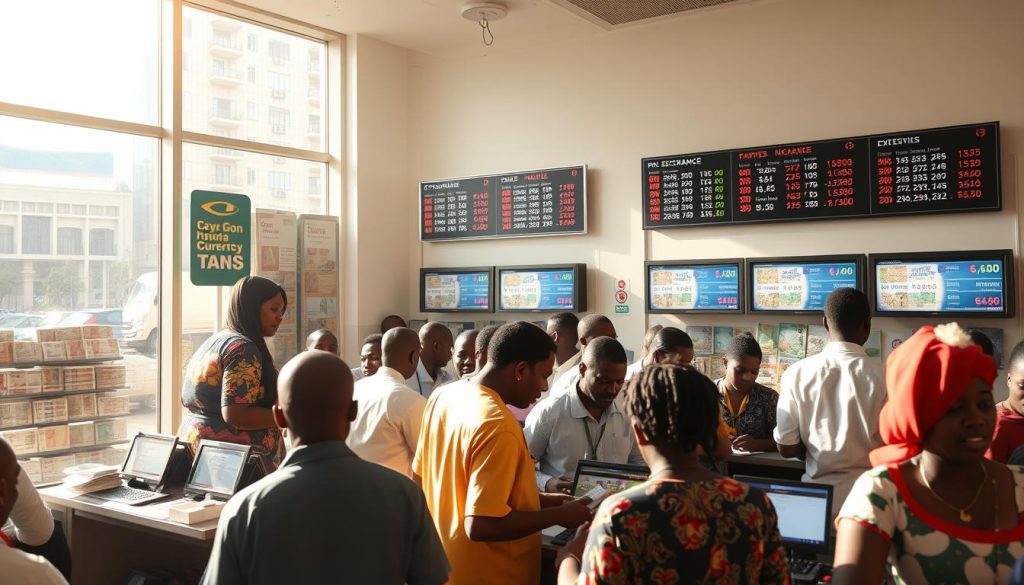
Official Banks and Authorized Money Changers
For a secure transaction, always use official banks or authorized money changers like Sulah Bureau de Change or Everdon. These institutions are regulated and offer competitive rates. Bring your passport, as it’s often required for bank exchanges.
Compare rates at multiple providers to ensure you’re getting the best deal. Exchange rates can fluctuate, so it’s worth checking a few places before committing. This small step can save you money in the long run.
Avoiding Illegitimate Exchange Services
Be cautious of black-market exchanges. While they may offer tempting rates, they often come with risks like counterfeit money or scams. Stick to reputable institutions to protect your funds.
Look for red flags, such as providers unwilling to show credentials or those operating in unmarked locations. Tourist-heavy areas are particularly prone to illegitimate services, so stay vigilant.
By following these tips, you can navigate currency exchange with confidence and focus on enjoying your trip.
Accessing Cash in Nigeria: ATMs and Local Banks
Accessing cash during your travels doesn’t have to be stressful if you know where to look. ATMs and local banks are widely available, especially in major cities like Lagos and at international airports. These options provide convenience and often better exchange rates compared to currency exchange services.
Tips for Safe ATM Withdrawals
When using ATMs, safety should be your top priority. Always choose machines located in well-lit, populated areas, such as inside bank branches or shopping malls. Avoid isolated or poorly lit spots, especially at night.
Before withdrawing, check for any suspicious devices attached to the ATM. Cover the keypad when entering your PIN to protect against skimming. Notify your bank about your travel plans to avoid unexpected fees or blocked transactions.
Using ATMs can also save you money. Many offer competitive exchange rates, reducing the overall cost of accessing cash. However, be mindful of withdrawal limits and fees, which can vary between banks.
Local Banks and Cash Exchange
Local banks are a reliable option for exchanging currency. They provide secure transactions and often have lower fees compared to unauthorized money changers. Bring your passport, as it’s usually required for these transactions.
If you’re taking a taxi, ensure you have enough small bills for payment. Many drivers prefer cash, and having the exact amount can save time and hassle.
By following these tips, you can access cash safely and efficiently, making your trip smoother and more enjoyable.
Using Credit Cards and Digital Payment Options
Digital payment methods are transforming how transactions are handled globally, and Nigeria is no exception. Whether you’re dining at a high-end restaurant or shopping at a local market, knowing your payment options can make your trip smoother. Credit cards and mobile wallets are becoming increasingly popular, offering convenience and security.
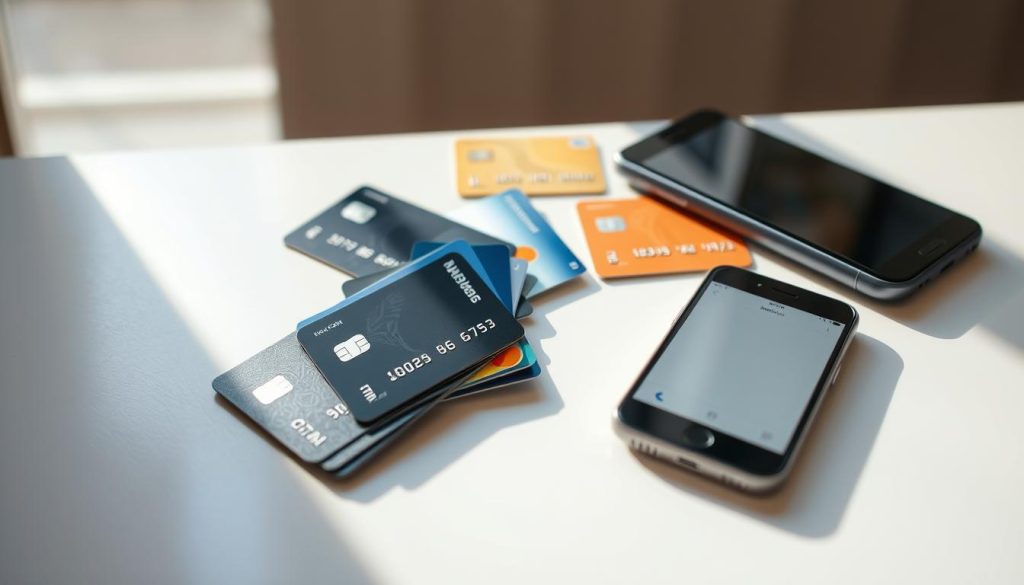
Credit Cards: Where They’re Accepted
In Nigeria, credit cards like Visa and Mastercard are widely accepted in upscale establishments. Hotels, international restaurants, and large retail stores often allow card payments. However, smaller businesses and rural areas may still prefer cash.
Before relying on your card, notify your provider about your travel plans. This helps avoid unexpected transaction blocks due to fraud alerts. Also, be aware of potential fees for international usage or ATM cash advances.
Contactless and Mobile Wallet Payments
Contactless payments and mobile wallets are gaining traction in urban areas. Apps like Google Pay and local mobile wallet options provide a quick and secure way to pay. These methods use tokenization, replacing card details with unique tokens for enhanced security.
To set up a mobile wallet, download the relevant app and link your card or bank account. This allows you to make payments with just a tap or scan. While convenient, remember that not all merchants support these options, so carrying some cash is still advisable.
| Payment Method | Where It Works Best | Limitations |
|---|---|---|
| Credit Card | High-end hotels, restaurants, and retail stores | Not accepted in rural areas or small businesses |
| Mobile Wallet | Urban areas with digital payment infrastructure | Limited merchant acceptance, requires smartphone |
| Cash | Everywhere, especially rural areas | Risk of theft, inconvenience of carrying large amounts |
By understanding these payment options, you can choose the best method for each situation. Whether you prefer the ease of a credit card or the speed of a mobile wallet, being prepared ensures a hassle-free experience.
Securing Favorable Exchange Rates for Your Travel
Getting the best exchange rate can save you money and make your trip more enjoyable. Rates fluctuate daily, so understanding how to navigate them is crucial. With a little research, you can avoid unnecessary fees and ensure you’re getting the most value for your money.
Researching Current Rates and Fees
Start by checking the current exchange rate before and during your trip. Use reliable sources like banks, authorized money changers, or digital apps. These tools can help you lock in favorable rates and avoid last-minute surprises.
Here are some actionable tips to secure the best rates:
- Compare providers: Check multiple banks and online services to make sure you’re getting the best deal.
- Understand fees: Look out for transaction fees, ATM fees, and currency conversion costs that can add up quickly.
- Plan ahead: Timing your currency exchanges can save you money, especially when rates are favorable.
Digital apps are a great resource for tracking rates in real-time. They allow you to monitor fluctuations and make informed decisions. Additionally, some apps offer alerts when rates hit your desired level, giving you an edge in securing the best deal.
By taking these steps, you can minimize costs and focus on enjoying your travels. Remember, a little effort in researching rates can go a long way in making your trip smoother and more affordable.
Nigeria: Ultimate Travelers Guide to Currencies & Payments
Planning your currency needs before arriving can save you time and money. Start by estimating how much cash and digital funds you’ll need. This ensures you’re prepared for expenses like transportation, meals, and souvenirs.
Convert some of your funds into Nigerian naira ahead of time. This helps you avoid high exchange rates at airports or hotels. Preloading travel money cards like Revolut can also simplify your money management.

- Estimate daily expenses: Research the average costs of meals, transportation, and activities.
- Carry a mix of cash and cards: While cards are convenient, cash is essential for smaller businesses.
- Verify visa and transaction requirements: Ensure your cards work internationally and notify your bank about your travel plans.
Best Practices for Money Management Abroad
Managing your money effectively during your trip is crucial. Use a combination of cash, cards, and digital wallets to stay flexible. This approach ensures you’re prepared for any situation.
Consider opening a multi-currency account or using a travel card like Revolut. These options allow you to hold and spend in Nigerian naira without high conversion fees. Always carry some cash for emergencies, especially in rural areas.
Here’s a comparison of payment methods:
| Method | Advantages | Limitations |
|---|---|---|
| Cash | Accepted everywhere, especially in rural areas | Risk of theft, inconvenience of carrying large amounts |
| Credit Card | Secure, widely accepted in urban areas | High fees for international transactions |
| Travel Card | Low fees, multi-currency support | Limited acceptance in smaller businesses |
By following these tips, you can get Nigerian currency easily and manage your funds efficiently. A well-thought-out plan ensures a smooth and enjoyable travel experience.
Cultural Insights into Money Handling in Nigeria
Understanding local money customs can make your trip smoother and more respectful. In this region, how you handle transactions reflects cultural norms. Whether tipping, bartering, or paying for services, knowing the way locals do it ensures you interact respectfully.
Tipping Etiquette and Service Charges
In many restaurants and hotels, tipping is often replaced by a service charge. This fee is usually included in your bill, so additional tips aren’t expected. However, for exceptional service, a small “dash” (tip) is appreciated.
For taxi drivers or small service providers, a “dash” is common. It’s a way to show gratitude for their help. Keep small bills handy, as this is often done in cash.
Bartering, Haggling, and Local Customs
Bartering is a standard practice in local markets. It’s not just about getting a better deal; it’s a cultural exchange. Start by offering half the asking price and negotiate politely. This way, you show respect for the seller’s craft while securing a fair price.
Be mindful of hidden transaction fees in markets. Some vendors may add extra costs, so clarify the total price before paying. Always carry cash, as card payments are rarely accepted in these settings.
By engaging respectfully with local customs, you’ll not only save money but also build positive connections with the community.
Exploring Travel Money Cards and International Payment Options
Travel money cards are a game-changer for managing your finances abroad, offering convenience and cost savings. These cards allow you to hold multiple currencies, avoid high exchange rate fees, and access funds easily through an app. Whether you’re planning a short trip or an extended stay, they simplify your money management.
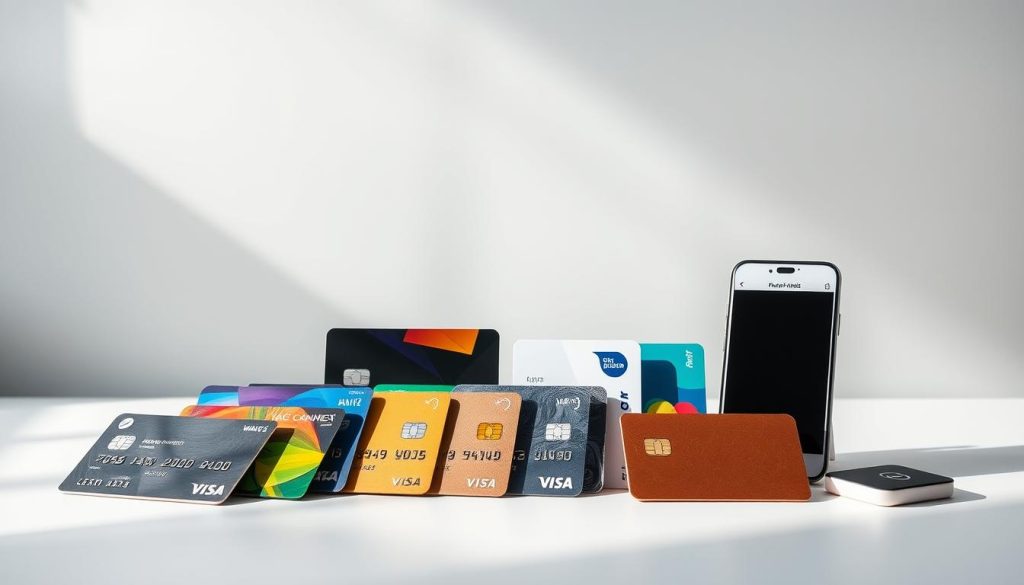
Overview of Popular Travel Cards
Several card options cater to international travelers. Wise and Revolut are two of the most popular choices. Both offer multi-currency accounts, competitive exchange rates, and user-friendly apps for real-time expense tracking.
Wise supports over 40 currencies and provides the mid-market rate for transactions. Revolut, on the other hand, allows you to hold balances in 33 currencies and offers additional features like budgeting tools. These cards are ideal for frequent travelers who want flexibility and low fees.
Comparing Wise and Revolut for Nigeria Travel
When choosing a card for travel nigeria, it’s essential to compare features. Wise offers free ATM withdrawals up to £200 per month, with a small fee after that. Its app provides real-time notifications for every transaction, making it easy to monitor your spending.
Revolut also excels with its multi-currency support and budgeting tools. However, it charges a 1.7% fee for ATM withdrawals outside Europe. Both cards allow you to freeze and manage digital cards through their apps, adding an extra layer of security.
Here’s a quick comparison:
- Wise: Mid-market exchange rates, 40+ currencies, free ATM withdrawals up to £200/month.
- Revolut: 33 currencies, budgeting tools, 1.7% fee for non-European ATM withdrawals.
By selecting the right card, you can save on fees and enjoy a hassle-free travel experience. These digital options are especially beneficial for US travelers looking to minimize money management stress abroad.
Understanding Transaction Fees and Currency Conversion Costs
Understanding transaction fees and currency conversion costs can save you money during your travels. These charges can add up quickly if you’re not careful, so knowing how to spot and avoid them is essential. Whether you’re withdrawing cash or using a credit card, being aware of these fees ensures you stay within budget.
Identifying Hidden Fees
Hidden fees are often the most frustrating thing to deal with. For example, ATM withdrawals may include a flat fee from the machine and a separate charge from your bank. Credit card transactions abroad often come with foreign usage fees, typically around 2.99%. Always check the fine print to avoid surprises.
Currency exchange providers may also add markups to the exchange rate. For instance, a bank might offer $125 per £100, while an airport kiosk offers only $118. This difference can significantly increase your costs. Comparing providers helps you get the best price.
Tips to Minimize Extra Charges
Here are some actionable tips to reduce fees:
- Use fee-free cards: Some debit and credit cards, like those from Chase Bank or Revolut, offer no foreign transaction fees.
- Withdraw in local currency: Avoid dynamic currency conversion, which often comes with higher fees.
- Plan ahead: Notify your bank about your travel plans to prevent account freezes or additional charges.
By following these tips, you can minimize extra costs and focus on enjoying your trip. Remember, a little research goes a long way in saving money.
Calculating the True Cost of a Transaction
To calculate the true cost, consider all components: the exchange rate, ATM or bank fees, and any service charges. For example, if you withdraw $100, a 3% fee adds $3 to your total. Always ask for a breakdown of fees before committing to a transaction.
“Reading the fine print is the best way to avoid unexpected things. Always know what you’re paying for.”
By understanding these fees and how they work, you can make smarter financial decisions during your travels. This ensures you get the most value for your money.
Conclusion
Managing your finances abroad doesn’t have to be overwhelming with the right preparation. Understanding the exchange rate and local currency can save you time and money. Whether you’re using a card or cash, planning ahead ensures a smooth experience.
Securing favorable rates and avoiding hidden fees is crucial. Compare providers and use digital tools like travel apps to track fluctuations. This helps you get the most value for your money.
Travel cards and digital payment options offer convenience and security. They simplify currency management and reduce unnecessary costs. Always carry some cash for smaller transactions, especially in rural areas.
By researching and preparing, you can enjoy a hassle-free trip. Plan your account needs, check visa requirements, and stay updated on local practices. A little effort goes a long way in making your travels enjoyable.
The above is subject to change.
Check back often to TRAVEL.COM for the latest travel tips and deals.
Here are some Tours & Sightseeing suggestions that might pique your interests!
